A comprehensive two-year small animal internal medicine program – 100% online & your structured route to a postgraduate certification and post nominal qualifications.
Work your way through the specialist-developed materials, at your own pace, with help and support available from registered Specialist Tutors on the online forum.
Weekly lessons for each Module include relevant clinical material to update and build on prior knowledge; the latest diagnostic and therapeutic options; and case studies to help consolidate the module content.
The innovative learning platform provides interactive short assessments and quizzes, video lectures, reference articles and demonstrations of clinical techniques, all supported by the specialist discussion board.
Small Animal Medicine Online Learning is the only veterinary postgraduate training program in Australia/New Zealand accredited by the International School of Veterinary Post Graduate Studies ISVPS for the General Practitioner Certificate in Small Animal Medicine.
If you’ve been waiting for a sign to join our 2024 Small Animal Medicine Program, THIS IS IT!!
Register and pay for the program by Monday 20 May (12pm AEST) and be in the draw to win $2000 CASH BACK* on your enrolment.
So, what are you waiting for?
Terms and Conditions apply: click here
Includes:
"*" indicates required fields


This program has been approved for 240 hours of continuing education credit in jurisdictions that recognise RACE approval.
Date: June 2024
Module Developer & Tutor:
Kieran Borgeat BSc BVSc MVetMed CertVC FHEA MRCVS DipACVIM DipECVIM-CA (Cardiology)
Key learning objectives:
Date: August 2024
Module Tutor:
Claire Sharp BSc BVMS MS DACVECC
Module Developer:
Simon Tappin MA VetMB GPCert (SAP) CertSAM DipECVIM-CA MRCVS
Key learning objectives:
Date: September 2024
Module Tutor:
Dr Stacey Brady BVSc (Hons I) MSc (AABAW) DipECVN
Module Developer:
Raquel Trevail DVM DipECVM MRCVS
Key learning objectives:
Date: October 2024
Module Tutor:
Mellora Sharman BVSc MVM PGradCert PhD FANZCVS DECVIM-CA FHEA MRCVS
Module Developer:
Simon Tappin MA VetMB GPCert(SAP) CertSAM DipECVIM-CA MRCVS
Key learning objectives:
Date: November 2024
Module Tutor:
James Foster BSc BVMS PhD FANZCVS
Module Developer:
Kerry Simpson BVM&S PhD FACVSc DipECVIM-CA MRCVS
Key learning objectives:
Date: February 2025
Module Tutor:
Thurid Johnstone DVM PhD DECVIM-CA
Module Developer:
James Swann MA VetMB MVetMed DipACVIM DipECVIM MRCVS
Key learning objectives:
Date: March 2025
Module Tutor:
Thurid Johnstone DVM PhD DECVIM-CA
Module Developer:
Joana Agguiar MVM MVetMed DipECVIM-CA MRCVS
Key learning objectives:
Date: April 2025
Module Tutor:
John Hutt BVSc (Hons) CertVD MANZCVS DACVD Specialist Dermatology
Module Developer
Rosario Cerundolo DVM CertVD DipECVD MRCVS
Key learning objectives:
Date: May 2025
Module Tutor:
Edith Hampson BVSc PhD FANZCVS
Module Developer:
Sally Turner VetMB DVOphthal MRCVS
Key learning objectives:
Date: July 2024
Module Developer & Tutor:
Kieran Borgeat BSc BVSc MVetMed CertVC FHEA MRCVS DipACVIM DipECVIM-CA (Cardiology)
Key learning objectives:
Date: November 2025
Module Tutor:
Mellora Sharman BVSc MVM PGradCert PhD FANZCVS DECVIM-CA MRCVS
European Specialist in Small Animal Medicine
Module Developer:
Scott Kilpatrick BSc (Hons) MSc BVM&S DipECVIM-CA MRCVS
Key learning objectives:
Date: April 2026
Module Tutor:
Ann Thompson BVSc MANZCVS MSc GCHEd DACVIM
Module developer:
Nick Bexfield BVetMed PhD DSAM DipECVIM-CA FSBiol MRCVS
Key learning objectives:
Date: March 2026
Module Tutor:
Ann Thompson BVSc MANZCVS MSc GCHEd DACVIM
Module developer:
Nick Bexfield BVetMed PhD DSAM DipECVIM-CA FSBiol MRCVS
Key learning objectives:
Date: February 2026
Module Tutor:
Philip Brain BVSc FACVSC (Small Animal Medicine) FAVA
Module developer:
Susana Silva CertSAM DipECVIM-CA MRCVS
Key learning objectives:
Date: June 2025
Module Tutor:
Bruce Parry BVSc PhD Diplomate ACVP Fellow AVA
Module Developer:
Nick Bexfield BVetMed PhD DSAM DipECVIM-CA FSBoil MRCVS
Key learning objectives:
Date: October 2025
Module Tutor:
Mellora Sharman BVSc MVM PGradCert PhD FANZCVS DECVIM-CA MRCVS
European Specialist in Small Animal Medicine
Module Developer:
Scott Kilpatrick BSc (Hons) MSc BVM&S DipECVIM-CA MRCVS
Key learning objectives:
Date: September 2025
Module Tutor:
Dr Randi Drees Dr.med.vet PhD DipACVR (Radiation, Radiology Oncology) DipECVDI add RadOncol PGCertAP MRCVS
Module developer:
Andrew Holdsworth BSc BVSc (Hons) DipECVDI, MRCVS
Key learning objectives:
Date: August 2025
Module Tutor:
Bruce Parry BVSc PhD Diplomate ACVP Fellow AVA
Module Developer:
Marta Costa DVM MSc FRCPath DipECVCP MRCVS EBVS® European Specialist in Veterinary Clinical Pathology
Key learning objectives:
Date: July 2025
Module Tutor:
Lydia Hambrook BVSc(Hons) FANZCVS Registered Specialist (Small Animal Medicine)
Module Developer:
Jame Swann MA VetMB MVetMed DipACVM DipECVIM MRCVS
Key learning objectives:
Date: May 2026
Module Tutor:
Veronika Langova MVDR MACVSC (Medicine) FANZCVS (Oncology)
Module Developer:
Ana Lara DVVM MSc PhD PgCert MedEd FHEA DipACVIM ECVIM-CA (Oncology)
Key learning objectives:
“Thank you for putting together a comprehensive module that highlights and discusses important fundamental knowledge that is applied regularly in clinical practice. It helps to improve quality of patient assessment and understanding of how to approach novel cases with unusual presentation”
“I found this module to be one of my favourites yet! The course provided useful handouts and was really applicable to general practice. Kidney disease is so common and it was a great refresher on how to diagnose and manage kidney disease”
“I really appreciated the tutors thoughtful and comprehensive responses to all our questions. Clearly a lot of time was spent constructing replies and providing relevant references which really solidified my learning and understanding of immunology”
“Thank you for putting together a comprehensive module that highlights and discusses important fundamental knowledge that is applied regularly in clinical practice. It helps to improve quality of patient assessment and understanding of how to approach novel cases with unusual presentation”
“I found this module to be one of my favourites yet! The course provided useful handouts and was really applicable to general practice. Kidney disease is so common and it was a great refresher on how to diagnose and manage kidney disease”
“I really appreciated the tutors thoughtful and comprehensive responses to all our questions. Clearly a lot of time was spent constructing replies and providing relevant references which really solidified my learning and understanding of immunology”
“Thank you for putting together a comprehensive module that highlights and discusses important fundamental knowledge that is applied regularly in clinical practice. It helps to improve quality of patient assessment and understanding of how to approach novel cases with unusual presentation”
“I found this module to be one of my favourites yet! The course provided useful handouts and was really applicable to general practice. Kidney disease is so common and it was a great refresher on how to diagnose and manage kidney disease”
“I really appreciated the tutors thoughtful and comprehensive responses to all our questions. Clearly a lot of time was spent constructing replies and providing relevant references which really solidified my learning and understanding of immunology”Previous slideNext slide
"This program was truly excellent. Lots of detail in the slides and hand-outs. Excellent mix of providing information, using questions to check understanding and all with the proper clinical relevance. Feel much more confident in how I would approach and treat these conditions. Specialist response to questions was quick and detailed."
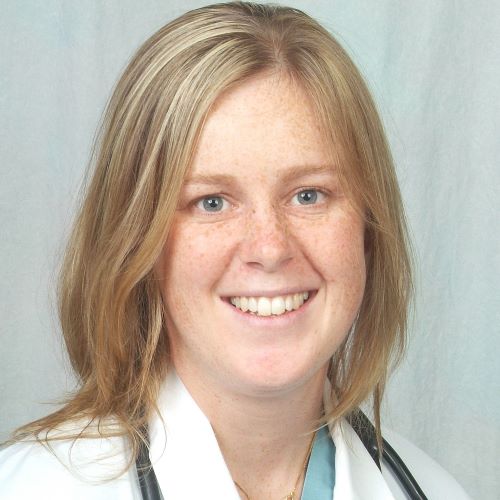
Claire is senior lecturer in the College of Veterinary Medicine, Murdoch University, an Associate Professor at Tufts Cummings School of Veterinary Medicine and a boarded Diplomate of the American College of Vet. Emergency & Critical Care. Claire enjoys working busy clinical service as Head of Section in Murdoch Pet Emergency and ICU, while teaching both undergrads and postgrads and pursuing innovative research (in the remaining time!). Claire is a much sort after expert in the ECC field and continuing education sector and takes an active lead in the Australian and international Veterinary ECC communities.
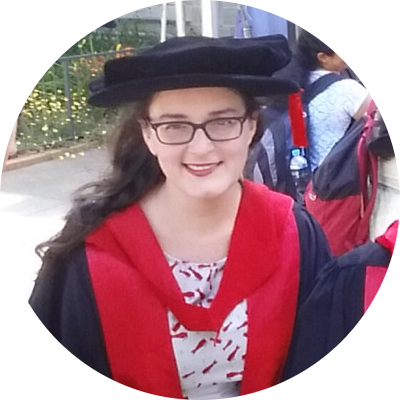
Mellora graduated from the University of Queensland, Australia in 2003, spending time in small animal general practice before gaining further experience through clinical positions at the University of Sydney and the University of Queensland. She completed a clinical residency in Small Animal Internal Medicine at Murdoch University in Perth, becoming a Fellow of the Australian and New Zealand College of Veterinary Scientists and a Diplomate of the European College of Veterinary Internal Medicine in 2012. Mellora moved to the UK in 2014, working first as maternity leave cover at the University of Glasgow for six months before joining the Animal Health Trust as a Senior Clinician in Small Animal Internal Medicine for five years, where she was involved with clinical research and resident training until the AHTs closure in 2020. She has since worked within the VetCT Team providing Teleconsulting services to general practice clients around the globe, and continues to regularly work clinical locums throughout the UK. As well as a keen interest in clinical research, Mellora continues to enjoy both undergraduate and postgraduate teaching, and further consolidated the teaching experience obtained through working within academic practice over many years with a Postgraduate Certificate in Veterinary Education from the RVC. Mellora has a research Masters in Veterinary Medicine from Murdoch University for work on sinonasal aspergillosis, and a PhD from the University of Melbourne, for investigation of applications of the novel gastrointestinal endoscopic technique, confocal endomicroscopy. Mellora enjoys all aspects of internal medicine, but particularly enjoys infectious disease and gastroenterology.

John graduated from the University of Queensland in 1988. He worked in general practice in Brisbane for 18 months before travelling to the UK in 1990, where he worked in small animal practice for the next 11 years. He was a clinical assistant in dermatology at the Animal Health Trust from 1998 to 2001.In 2001 John set up North Kent Referrals, a multi-disciplinary referral practice in the south of England, and he owned and ran the practice until its sale in 2012. John holds the RCVS Certificate in Veterinary Dermatology, is a member of the Australian College of Veterinary Scientists (MANZCVS) by examination in small animal medicine, and is a diplomate of the American College of Veterinary Dermatology. John is a past President of the British Veterinary Dermatology Study Group. Following his return to Brisbane in 2013, John joined the team at Dermatology for Animals. Outside of work John's major interest lies in English Literature and in 2006 he completed a Bachelor of Arts at the Open University.
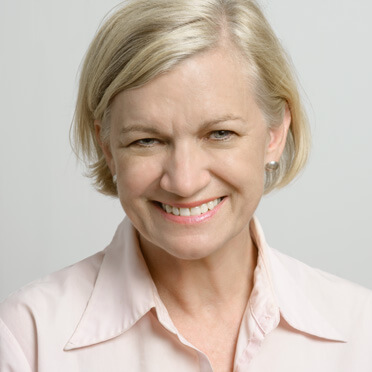
Edith Hampson is a Queensland graduate with more than 20 years experience who has worked both in small animal veterinary practice and in research centres. Edith is passionate about eyes and loves teaching ophthalmology. She is an Adjunct Associate Professor at The School of Veterinary Science, The University of Queensland, where she continues to lecture and perform research studies. Edith visits WestVETS once a week to provide an Ophthalmology service to equine patients and provides ophthalmology services to small animal patients at the new VSS Jindalee hospital.

Bruce is Professor emeritus at the University of Melbourne. He taught clinical pathology at the Melbourne Veterinary School for 3 decades, before 'pre-retirement' in 2013. His areas of interest include haematology, cytology, coagulation and transfusion medicine. He has a practical approach to the application of laboratory tests in the clinical setting and currently provides in-house tutorials for vets and nurses.
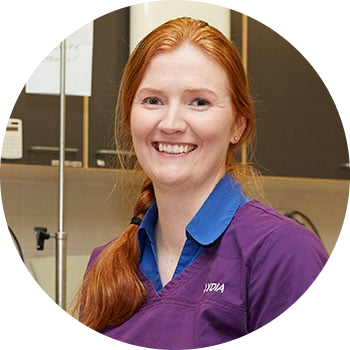
Lydia graduated from the University of Melbourne in 2002. After gaining experience in mixed, equine and small animal practice she commenced a residency in Small Animal Medicine at the Melbourne Veterinary Specialist Centre in 2009. Lydia passed her ANZCVS fellowship exams and became a registered specialist in Small Animal Medicine in 2012. Since then, she has worked in a Melbourne-based busy private referral practice. Lydia joined the University in 2016 because she’s just as passionate about inspiring upcoming veterinarians as she is about personally caring for sick animals and their concerned owners. Lydia believes that great communication skills coupled with sound logic and clinical reasoning are essential components of the diagnostic process. Lydia has extensive experience examining for the Australian and New Zealand College of Veterinary Scientist where she has been the Head of the Small Animal Medicine Chapter Examination Committee since 2015. Lydia thoroughly enjoys all facets of Small Animal Medicine but she is particularly interested in cardiology, endocrinology, hepatobiliary disease, oncology and complex multi-disease management.

Philip H Brain graduated from the University of Sydney in 1985 and after 13 years in general practice, completed a residency program in small animal medicine at the Veterinary Specialist Centre, North Ryde, NSW and gained his Fellowship in Small Animal Medicine from the Australian College of Veterinary Scientists in 2007. Previously Brain has been an examiner for the Australian College of Veterinary Scientists in small animal and canine medicine and continues to be a mentor and supervisor for candidates. Brain served on ASAVA executive for 19 years including a Presidential term, two terms as Honorary Secretary and ASAVA scientific convener for over 10 years. He was recognized with an AVA Meritorious Service Award in 1999, the ASAVA Distinguished Service Award in 2005 and a special ASAVA outstanding service award in 2010. He became the first veterinarian to receive a Chartered Membership (CMAVA) of the AVA in 2004. Brain was a scientific convener for the FASAVA Congress in 2014 in Beijing and the chief scientific convenor for the FASAVA Congress in 2017 on the Gold Coast, Queensland. He was recognized with a service to veterinary nursing award in 1997 and was the first veterinarian to be awarded honorary membership of the Veterinary Nurses Council of Australia in 2003. He was awarded a fellowship from the AVA in 2007 in recognition of his service to the profession. He received the Australian Small Animal Veterinary association Practitioner of the Year Award in 2017 and one year later was the first Australian to receive the International Hills-FASAVA Practitioner of the Year Award. Brain is a registered specialist in small animal medicine and is currently practicing at the Small Animal Specialist Hospital (SASH) in North Ryde, Sydney and clinical interests include endoscopy, cardiology, endocrinology and interventional techniques.

Ann graduated from the University of Queensland in 1997. After graduation she worked in general practice in Melbourne and the UK before returning to the University of Queensland Veterinary Teaching Hospital. While at UQ she obtained her membership in small animal internal medicine. Ann then briefly worked at Veterinary Specialist Services in 2003 before going to the United States to pursue a residency in small animal internal medicine at Purdue University Veterinary Teaching Hospital. Ann completed her Masters in veterinary medicine and passed her internal medicine exams at the end of her training program in 2006. She was awarded her Diplomate in Small Animal Internal Medicine by the American College of Veterinary Medicine in March 2007. During her residency, Ann was awarded the Katie McAllister Compassion Award for compassionate care of her patients. Ann returned to Australia in July 2006 to start working with the internal medicine team at Veterinary Specialist Services (Brisbane) where she spent almost 7 years treating many varied and interesting cases. Ann has a love of teaching and in 2013 she took on the role of starting up the small animal medicine referral service at UQ Veterinary Medical Centre Gatton.While at UQ Ann completed a teaching qualification (graduate certificate in higher education) and taught both veterinary technology and veterinary students in lectures and the clinic. Ann re-joined VSS in 2017 to take on the role of mentoring the VSS Residency Program. This program has strong links to UQ and is the perfect opportunity for Ann to shine. Ann's current areas of interest are; endocrinology, urinary tract disease, non-invasive diagnostics and veterinary education.
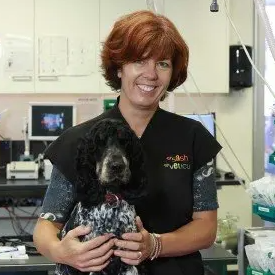
Dr Veronika Langova graduated in Brno, Czech Republic in 1992. She was admitted to the Australian College of Veterinary Scientists as a Member in Small Animal Medicine in 2000. In 2005, she attained Fellowship in Small Animal Oncology after completing her residency at Animal Cancer Care in Brisbane. During 2006-2007, she joined the team of oncologists at the Colorado State University as an Associate Professor. She then spent 12 months working at the Queensland Veterinary Specialists and Veterinary Specialist Services in Brisbane, then the Veterinary Specialist Centre in Sydney. Dr VeronikaLangova is currently working as head of oncology at SASH Sydney for the past 10 years. Veronika is a member of Veterinary Cancer society, the Postgraduate Foundation, Australasian Association of Veterinary Diagnostic Imaging and the Australian Veterinary Association. She is interested in cancer research and has devoted time to Engeneic Pty Ltd as a clinical trial coordinator, researching on multi-drug resistance and targeted chemotherapy delivery. In her spare time, Veronika enjoys hiking, mountain biking, skiing, swimming and windsurfing.

Dr Thurid Johnstone graduated in Veterinary Science from Leipzig University, Germany. She completed a PhD with focus on canine and feline urinary tract infections at Massey University in New Zealand and specialist training in small animal internal medicine in Auckland, NZ and Dublin, Ireland. She became a board-certified specialist (DECVIM-CA) in 2010.Thurid worked in Ireland and Sweden before joining the team at U-Vet Animal Hospital Werribee as lecturer, researcher and clinician in 2013.Her research interests are in small animal endocrinology, urology, uromicrobiology and bacterial antimicrobial resistance. Thurid strives to deliver continuing education that is mind-stimulating, up-to-date and reflective of her passion to provide the best possible care to dogs and cats.

After graduating from Murdoch University in 1990, James worked in general practice followed by a residency in Feline medicine and a PhD investigating feline thyroid disease, both at the University of Edinburgh.Upon returning to Australia, James acquired his specialist credentials in Feline Medicine in 2000 through the ANZCVS.James' specialty by examination is in feline medicine, however he is formally trained in both canine and feline medicine.James has spent the majority of his career in private referral practice working with both species.James has a specific interest in endocrinology, respiratory disease, cardiology, liver disease, nutrition, feline pancreatic disease, managing co-morbidities in geriatric animals and peculiarity of feline behaviour and the species-specific conditions they acquire.

Neurologist & Neurosurgeon Dr Stacey completed her veterinary degree at the University of Sydney in 2011. She worked in small animal practice for several years while studying for her Masters in Animal Welfare and Behaviour at the University of Edinburgh. She completed her residency in neurology & neurosurgery at the University of Melbourne. Stacey then travelled to the UK to practice at the Queen’s Veterinary School Hospital at the University of Cambridge before becoming a diplomate (specialist) of the European College of Veterinary Neurology. Then only recently in 2021, Stacey returned to Sydney to practice as a specialist. In her spare time, Stacey enjoys walking and spending time with her dog, Tiger.

Kieran is an American and European Diplomate and RCVS Recognised Specialist in Veterinary Cardiology. He worked for 6 years in first opinion practice, during which time he completed a Certificate in cardiology, then undertook a residency and Masters degree at the Royal Veterinary College, London. He has given CPD to vets all over the world on cardiology, from Bulgaria to Singapore, and enjoys nothing more than chatting about cardiology to other vets. He is an experienced interventional surgeon, treating not only cardiovascular disease, but respiratory, urinary and oncological problems using minimally invasive, image-guided techniques.
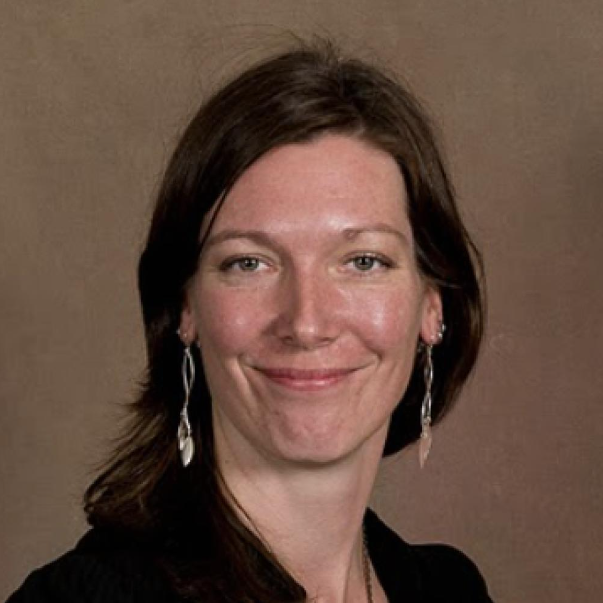

Dr Randi Drees graduated from the Freie Universität Berlin, Germany in 2001. Randi spent time in private practice before pursuing her Diagnostic Imaging residency at the University of Wiconsin-Madison, USA. She became board certified with the European College of Veterinary Diagnostic Imaging and American College of Veterinary Radiology in 2008. Randi then pursued an alternative training program in Veterinary Radiation Oncology at the University of Wiconsin-Madison, USA and became board certified with the American College of Veterinary Radiology (Radiation Oncology) in 2012. She held a clinical assitant professorship and was section head of the diagnostic imaging section at the School of Veterinary Medicine at the University of Wiconsin-Madison, USA before relocating to the RVC in London where she is leading the small animal diagnostic imaging section. She is a member at large of the board of the ECVDI and member of the radiation oncology education and credentials committee establishing an add-on Training program in Radiation Oncology for Diplomates of the ECVDI and ECVIM colleges.
Full Payment Upfront: Total payable AU$15,100 inc GST
All prices are inclusive of compulsory 10% GST. Price of Small Animal Medicine online learning program excludes ISVPS registration & examination fees.
SPECIAL OFFER: Register and pay for the program by Monday 20 May (12pm AEST) and be in the draw to win $2000 CASH BACK on your enrolment.
For full Terms and Conditions, click here.
AU $2,000 initial deposit to secure your place. The full balance of fees ($13,100) must be paid one month prior to the program start date (on or before 1 May 2024).
If your enrolment is being submitted within one month of the program start date and you would like to discuss payment options, please contact the Improve team.
All prices are inclusive of compulsory 10% GST. Price of Small Animal Medicine online learning program excludes ISVPS registration & examination fees.
Payment plans may be available. A member of the Improve team will be in touch to discuss your individual requirements.
Please note that an administration fee applies for all payment plans.
All prices are inclusive of compulsory 10% GST.
Terms and Conditions apply to all bookings.
Please find the terms and conditions here.
You must be a graduated Veterinary Surgeon with a minimum of 1 year clinical experience. Please check with Improve to ensure your suitability. It is the responsibility of the delegate to ensure you meet the program entry criteria.
You will spend on average 3-5 hours per week on reading and working through the interactive materials on the platform. You may spend significantly more time if you are engaging with the specialist tutor and your colleagues on the discussion forum and posting cases and questions, preparing cases, forum interaction etc.
After the module month is over, you will continue to have access to the SAM Online Learning interactive material, however, the specialist tutor for that month’s module will no longer be available for answering questions. You will still have access to the discussion forum and the ability to view archived questions/tutor responses and can discuss module content/questions with other delegates.
It is advised to make use of the specialist tutors for each month’s module by asking questions on the discussion board for that month. If you have questions on a makeup module that is complete, the discussion board is also open to colleagues engaging and answering. The idea of the forum discussion boards are that colleagues in the program, from around the world, can help each other and add thoughts and ideas on makeup questions.
The program must be completed within 12 months of the final module. GPCert candidates will then have up to four years to satisfy ISVPS assessment requirements (assessment requirements may change so contact [email protected] for up to date information). Candidates will have the option to resubscribe for continued access. Please contact our team on [email protected]
The (GPCert) programs complete the learning objectives of the GPCert syllabus and are not intended to fully cover the ANZCVS Membership requirements. The program will provide a structured study program and a solid clinical and practical knowledge that will definitely benefit those undertaking further study in small animal medicine. A number of our program participants have successfully used the Gen. Practitioner Cert Programs for their Membership preparation.
Yes. Location of study does not affect/change this global program. We can accept delegates across Australia, New Zealand & the Pacific region.*
Additionally, all content is pre-recorded so can be viewed at any time of day (i.e. time zone differences will not impact your access to content). However, you may need to allow extra time for tutor responses (as tutors will be based in Australia).
If you intend to sit the GPCert(SAM) qualification through ISVPS, their requirements are based around online assessment. ISVPS are an independent accrediting and awarding body – please contact the ISVPS directly for further information ([email protected]).
*Be aware if you are not from these geographic regions you will be referred to the nearest Improve International Office who can help you enrol in the SAM Online Learning program.
